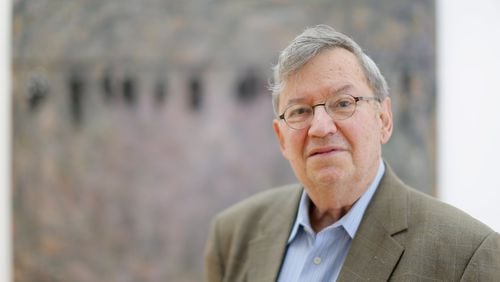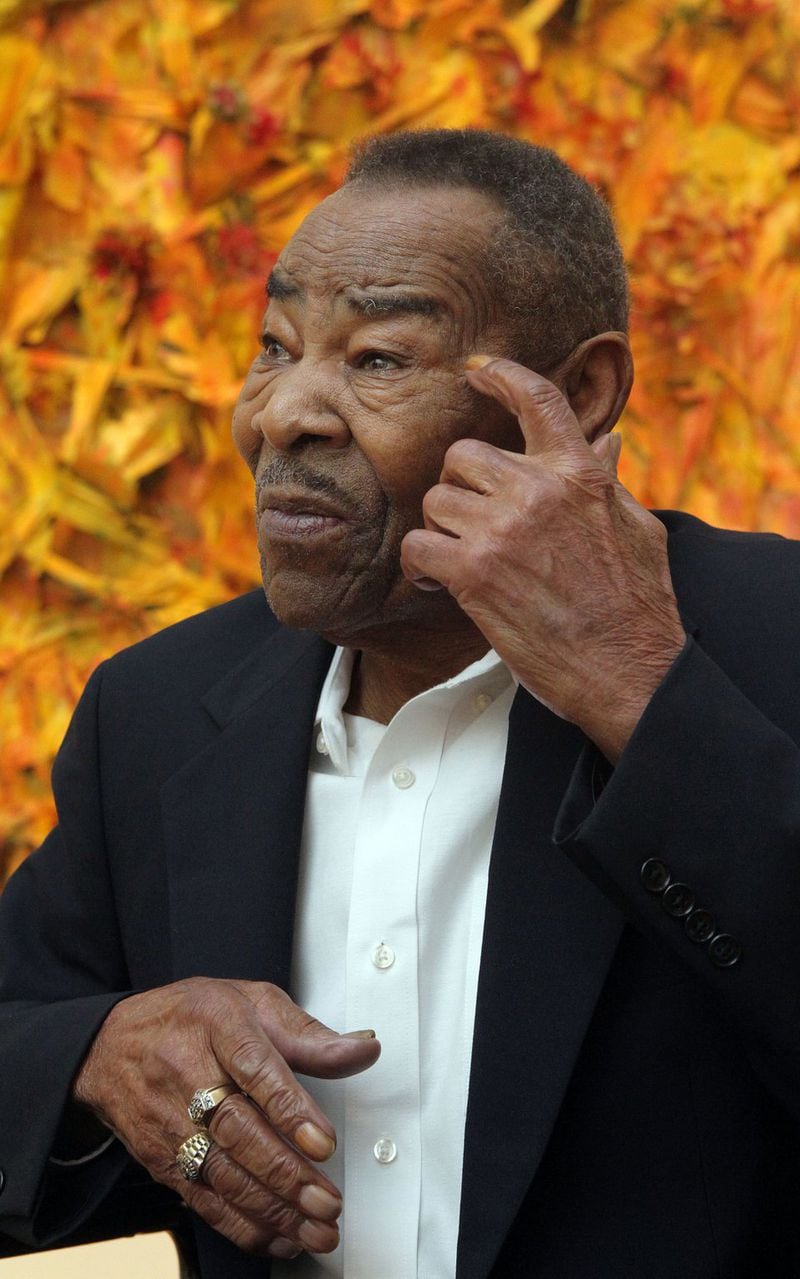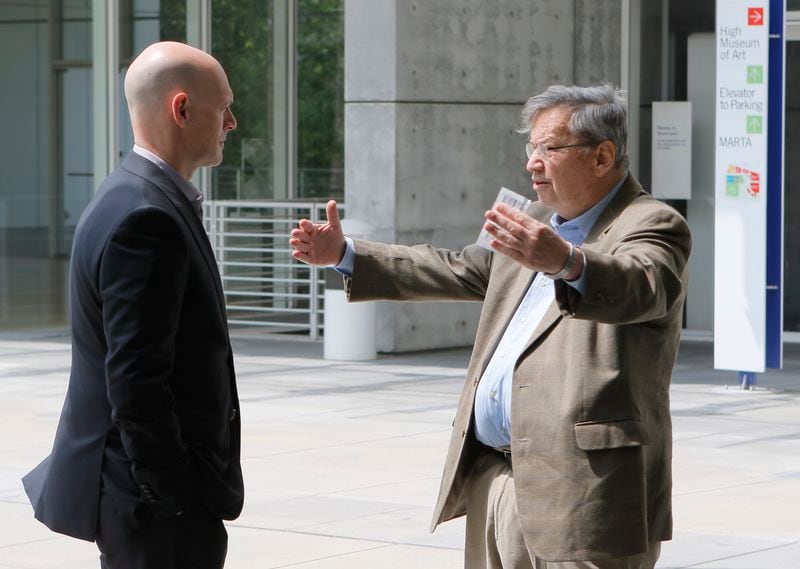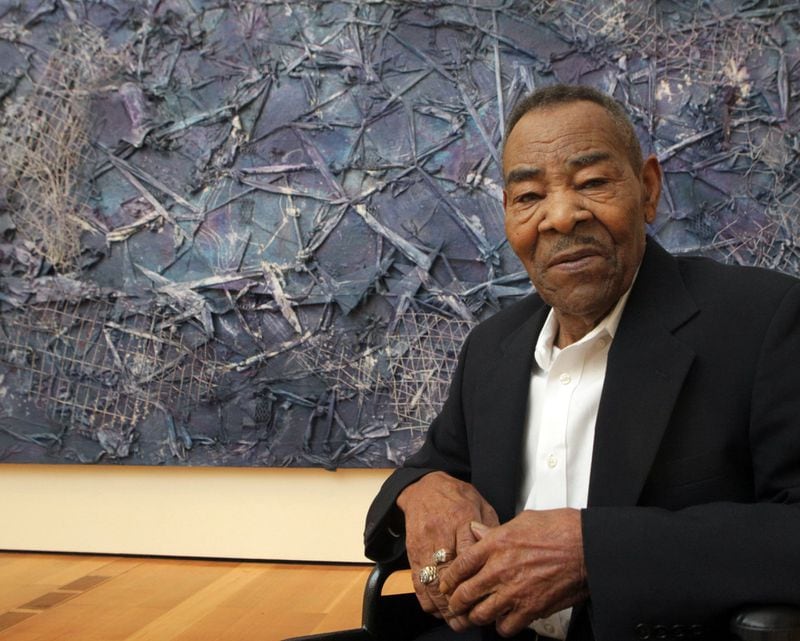How attorney Gary Coulter wound up with 121 Thornton Dial drawings in his law office for three years is in dispute.
Coulter said he was holding the works by the renowned Southern folk artist as security against unpaid legal bills from his client, the trailblazing Atlanta art collector Bill Arnett. Arnett says Coulter took the art without his knowledge and also improperly collected hundreds of thousands of dollars from Arnett accounts to which Coulter had access.
The Georgia Supreme Court strongly criticized Coulter, finding in a recent ruling that the lawyer had “a dishonest motive” in his dealings with Arnett.
The high court rejected Coulter’s request that he be given a public reprimand or suspended from the practice of law for up to two years. It said that wasn’t sufficient punishment for the Watkinsville attorney, who’s been practicing more than four decades. It is now up to the State Bar of Georgia to propose more discipline for Coulter. The most serious sanction beyond a public reprimand or suspension is permanent disbarment.
The court noted that the artwork that found its way to Coulter's office was worth an estimated $850,000. Dial, who died last year, was a self-taught artist from rural Alabama. His work hangs in the Museum of Modern Art in New York, the Smithsonian American Art Museum and the High Museum.
And it was Arnett who helped put Dial on the map. Arnett, with a keen eye, has devoted decades to finding and promoting untrained African-American artists in the South.
“I’m a better judge of things like art that just sit there as opposed to people who walk around and talk,” Arnett said in a recent interview. As for Coulter, “I totally trusted the guy, but he just stole me blind,” Arnett said.
Coulter, who did not return phone calls or an email seeking comment, defended his legal work for Arnett during the State Bar disciplinary proceedings.
“Coulter has at all times acted in good faith and in the best interests of his clients,” one filing said. In another, Coulter wrote, “I have a reputation for ethical conduct and I believe my personal character for ethical integrity justifies that reputation.”
Coulter began representing Arnett and his family interests for eight years beginning in 2003, initially handling tax matters and a landlord-tenant dispute. But the scope of Coulter’s representation expanded over the years to include personal and business legal matters.
Coulter, who had signature authority over various Arnett accounts, paid his firm $400,000 in fees during the first 10 months of 2011 — more than half of his firm’s total billings during the same period, court filings say. In 2008, Coulter took possession of 121 Thornton Dial drawings as security for fees he said Arnett owed to him.
In court filings, Coulter said Arnett agreed to this arrangement and signed an agreement allowing it to happen. Arnett said that never happened, and Coulter was unable to produce the alleged agreement, the state Supreme Court noted.
The Thornton Dial works were finally returned to Arnett in November 2011, although Coulter contended in court filings the artwork was “illegally and tortuously taken from his office.”
The Supreme Court’s unanimous opinion said even though the art was returned to Arnett, “significant funds were (also) taken from his accounts without adequate documentation of fees and expenses or Coulter’s entitlement to them.”
The court also noted Coulter had previously been disciplined in a separate case in which he overcharged a client and then failed to pay the reimbursement he had agreed to.
“Given the nature of these violations, and Coulter’s previous discipline, substantial discipline is necessary to serve not only as a penalty to Coulter but also as a deterrent to others and an indication to the public that this court will maintain the ethics of the legal profession,” the Supreme Court said.
Arnett said he was pleased with the court’s decision.
“I’m proud that I’ve changed history in some very good ways,” he said of his work with artists in the rural South. “But this experience was horrible. This was a person who had gained my trust.”










